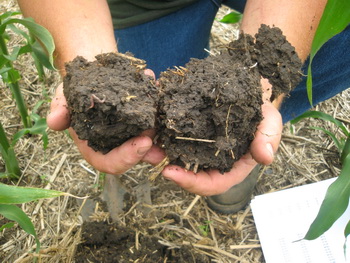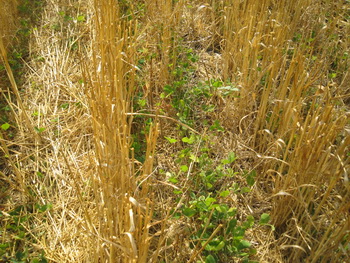
There are three interrelated principles of conservation agriculture:
Large-scale farming without plowing became possible at the end of the 20th century due to innovations and technical solutions. Today, 132 million hectares are farmed under No-Till all over the world.
With zero-till soil is left undisturbed from harvest to seeding and from seeding to the next harvest. Mechanical soil disturbance is limited to direct seeding into undisturbed soil. Three types of openers are traditionally used for this operation: disc opener, hoe-opener and a combination of both. The drills used for direct seeding should be able to cut through crop residues causing minimal movement of soil surface. Control of weeds is based on understanding their biological features and using crop rotations, crop residues and timely application of crop protection chemicals in minimum amounts.
 Saving of resources (fuel, fertilizers, labor, time, spare parts and reduction of depreciation costs).
Saving of resources (fuel, fertilizers, labor, time, spare parts and reduction of depreciation costs).
Increase of profitability of farming (increase of returns on money invested into production)
Maintenance and restoration of soil tilth (improvement of its chemical, physical and biological properties, increase of soil organic matter content).
Reduction or elimination of soil erosion (no need to spend additional money to solve this problem).
Ecological management of weeds (weeds are controlled by means of proper crop rotations, seeding dates and cover crops).
Increase of soil moisture content (due to improved moisture accumulation and moisture retention in the soil).
Reduction of yield dependence on weather conditions. With today’s organization of agriculture the yield is 80% weather dependant, whereas with No-till the influence of climate and weather is reduced to 20%. Other 80% account for technology and agricultural management, which are united into one system
Yield increase (since soil structure is improving, No-Till allows to harvest higher yields compared with traditional tillage).
Improvement of grain quality (soil tilth is improved, nutrients are accumulated; this leads to improvement of grain quality).
Agriculture means establishment of a specific culture of interaction with nature.